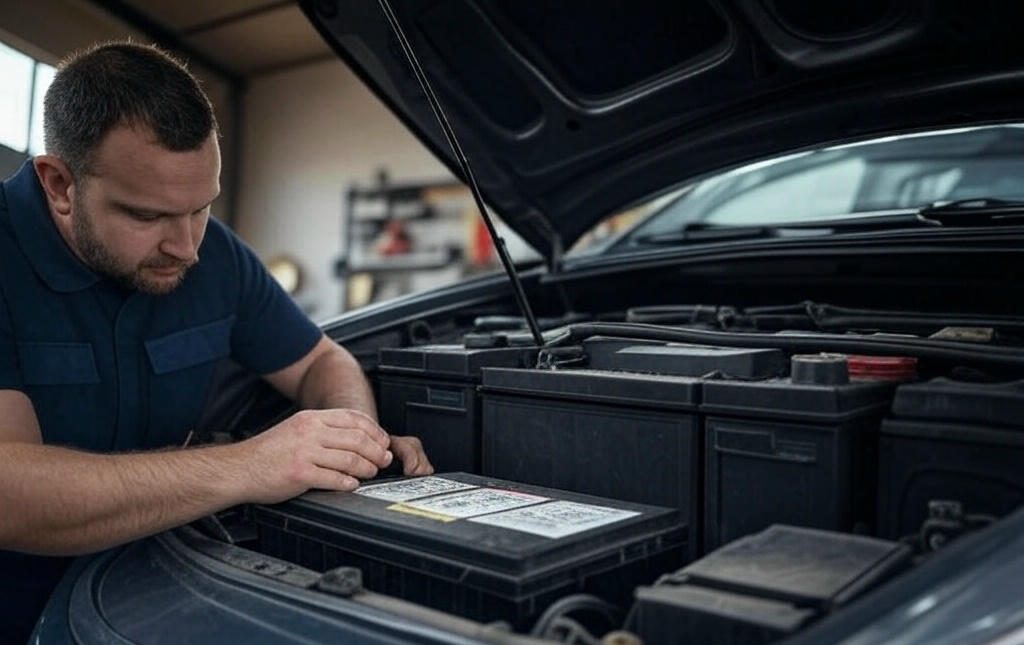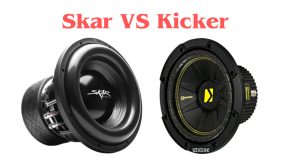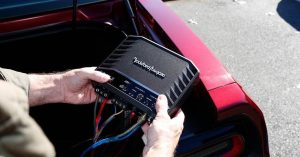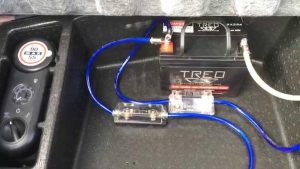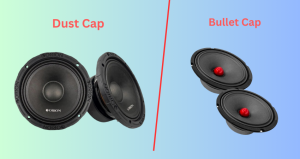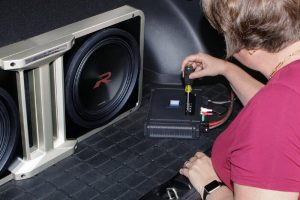Picture this: you’re cruising down the highway, favorite tunes blasting from your car stereo. The desire to enhance your car audio experience leads to the burning question, “Can I use a regular car battery for car audio?” The short answer: yes, you can use a regular car battery, but there are significant drawbacks. Now, let’s dive into the world of car batteries and explore the potential behind upgrading your car stereo system.
Contents
Importance of a Reliable Power Source for Car Audio
Car audio enthusiasts understand the pivotal role a stable power supply plays in achieving optimal sound quality and performance. Your car battery is not just there to start the engine; it also powers the intricate components of your car stereo. The very essence of your musical journey hinges on the consistent and uninterrupted flow of power from the battery.
Understanding Car Batteries
Before delving into the specifics of car audio, let’s take a quick look at the types of car batteries available. Regular car batteries, also known as starting batteries, are designed to provide a burst of energy needed to start the engine. These batteries have thin lead plates, allowing for a quick discharge of energy.
Deep-cycle batteries, on the other hand, are specifically designed for prolonged power delivery. These batteries have thicker lead plates, enabling them to discharge energy over an extended period without suffering damage. Deep-cycle batteries are commonly used in applications such as recreational vehicles, boats, and, of course, car audio systems.
Power Requirements for Car Audio Systems
Car audio systems come with a variety of components, each with its power consumption characteristics. Amplifiers, speakers, and subwoofers all draw power from the battery. The potential strain on a regular car battery becomes evident when you add high-powered audio systems to the mix.
Amplifiers, in particular, can demand significant power, especially when pushing the boundaries of volume and bass. If your regular car battery isn’t up to the task, you might experience voltage drops, causing your audio system to momentarily lose power during intense moments, leading to distorted sound and diminished performance.
Risks and Challenges of Using a Regular Car Battery
Using a regular car battery for your car audio needs may pose several challenges. Voltage drops, caused by the battery struggling to meet the audio system’s demands, can result in diminished sound quality. Moreover, the constant discharge and recharge cycles can significantly reduce the regular car battery’s lifespan.
Regular car batteries are not designed to handle the cyclical nature of car audio usage. The quick bursts of energy required for starting the engine are a far cry from the sustained power demands of a car audio system operating for an extended period. This mismatch can lead to premature battery failure, leaving you stranded and potentially damaging your audio components.
Choosing the Right Battery for Car Audio
To avoid these pitfalls, consider investing in a deep-cycle battery specifically designed for the sustained power demands of car audio systems. Deep-cycle batteries, unlike their regular counterparts, are built to provide consistent power over extended periods. They are better equipped to handle the cyclical nature of car audio usage without sacrificing performance.
When selecting a battery for your car audio system, pay attention to the capacity (measured in ampere-hours) and choose one that aligns with your system’s power requirements. This ensures a reliable power supply, minimizing the risk of voltage drops and other issues.
Installation Tips and Best Practices
Proper installation is key to maximizing the performance of your car audio system. Ensure that the battery is securely connected, and the wiring is of sufficient gauge to handle the power demands. Avoid common mistakes like insufficient grounding and loosely connected terminals to maintain a stable electrical environment for your car audio components.
Additionally, consider installing a secondary battery or a dedicated car audio battery if your system is particularly power-hungry. This allows you to isolate the power draw from your car’s essential functions, ensuring that your audio system doesn’t compromise the overall performance of your vehicle.
Real User Experience
To illustrate the importance of choosing the right battery, let’s consider a hypothetical scenario. User A, an avid car audio enthusiast, decided to install a high-powered audio system in their vehicle. Eager to save some money, they opted for a regular car battery, assuming it would suffice.
Initially, User A was thrilled with the booming sound and powerful bass. However, as they pushed the system to its limits, voltage drops became apparent during intense musical passages. The once-impressive audio quality was now marred by distortion and intermittent power loss.
User B, on the other hand, invested in a deep-cycle battery specifically designed for car audio applications. Despite a slightly higher initial cost, User B enjoyed a seamless audio experience with consistent power delivery. The bass hits were powerful, the highs crisp, and there were no signs of voltage drops or distortion.
Conclusion
So, can you use a regular car battery for car audio? The answer is yes, but with significant drawbacks. To truly unleash the potential of your car stereo system, investing in a deep-cycle battery designed for continuous power delivery is the way to go. Don’t let your passion for car audio be hindered by an inadequate power source—make the upgrade and elevate your driving experience.
